Mrs. Janet Kratz touching students’ lives for 37 years
After 37 years, North Penn English teacher Janet Kratz is saying goodbye.
American writer and theologist Frederick Buechner once said “Vocation is the place where the world’s greatest need and a person’s greatest joy meet.”
“I think for me, that was teaching,” North Penn High School English teacher Mrs. Janet Kratz said, when reflecting on her career weeks before her retirement. “I can look back and think that what I did was worthwhile and I touched a lot of students’ lives, and I made a difference, and that’s a great feeling.”
Over her 37 year career, Kratz has taught nearly every grade in every level and covered most of the curriculum of the English department. Throughout her North Penn career, she has earned the reputation of being a tough teacher, but one that is passionate about making her students better writers.
“I taught both ends of the spectrum, and I liked both ends of the spectrum. I think my philosophy is that you have to teach to the top of whatever class you’re teaching, and it’s your job to bring everybody else up there,” Kratz said.
“A teacher who understands her students is hard to come by. Mrs. Kratz, even in teaching difficult literature and intensive writing concepts, took time to ensure students’ success,” former AP English Language and Composition student and current senior Aiden Guo said. “A gentle sail in stormy winds, she guided her students through tumultuous times with grace and passion.”
Specifically, for her AP students, she wanted them to be as good of writers as she was. She wanted them to meet her standards and even beyond it if possible.
She helped many students one-on-one as she felt it was the best way to teach writing. Through these sessions, she saw light bulbs going off that didn’t happen during the day.
“I used to tell them that I sort of saw them like a game of Whack-a-Mole,” Kratz joked. “I wasn’t trying to knock them down, but as the year unfolded, heads would keep popping up, and I would think, ‘Okay, we’re getting there because some people flew in September and October and some people didn’t really hit their stride until April and May. It didn’t really matter as long as you got to where you needed to go.”
Among all of the courses she has taught, 11th AP is by far her most favorite course to teach.
“I think it’s because I created the curriculum I wanted. It had to be approved by College Board, but there was so much more choice and flexibility and if I saw something exciting in the news I could post it. I just felt I had a lot more freedom to reach my students, and I love that,” Kratz said. “The woman who taught 12th AP ahead of me said to me that, ‘You will see everything teaching can be,’ and she was right. I don’t think a day went by that I didn’t laugh and just get excited by students who were also really excited to learn.”
Two particular moments that made her proud as teacher occurred both inside and outside the classroom. The one in the classroom was when she saw roughly 25 students in the hallway at the end of the day. They came into her room with a hard bound collection of their writings that was published for her.
“Ironically, it was called Mirrors and Windows because I had given an assignment that year that used the quote. The purpose of education is to turn mirrors into windows, so they entitled this hard bound book Mirrors and Windows, and they had sessions and they had a foreword and an afterword, and they all signed it, and it was like a personal writing yearbook, with a collection of their writings that year and that was awesome,” Kratz described. “I said to them, ‘That goes in my coffin.’”
Her other memory that occurred outside the classroom was her highest professional moment. She spoke at the AP National Conference in 2014 in Philadelphia.
“I just rolled out strategies I use and they are, to me, very old school. It was really well received, and that was exciting because I knew I was meeting some pretty high power people, and they liked it,” Kratz reflected. “That was really a moment. I walked out of there and I thought, ‘I think this is it. I think this is my moment. I think this is probably the best it will ever be.’ And I think I was right about that.”
Beyond the moments that made her proud as a teacher, there were also memories that she continues to cherish each and every single day.
“I think what I remember most are the students who made me laugh. I had some students come in and I would tease them and say, ‘Why don’t you just get married? You’re never gonna find this.’ They were so funny like their repartee was great, and I would just love to listen to them, and sometimes they would insult each other and it was hilarious,” Kratz remembered. “They would just look at me and I said, ‘Well, you know, if it’s well done, I have to allow it like it’s pretty well done,’ so I think my best memories at any level are of students who made me smile, who made me laugh.”
Like many teachers, she also enjoyed seeing that a-ha moment in her students.
It doesn’t matter whether a student is highly gifted or not. When they get something that’s a really deep source of satisfaction, and I think sometimes an even deeper source of satisfaction if that student had to struggle and had to work really hard.
— Mrs. Janet Kratz
“It doesn’t matter whether a student is highly gifted or not. When they get something that’s a really deep source of satisfaction, and I think sometimes an even deeper source of satisfaction if that student had to struggle and had to work really hard,” Kratz said. “There was a girl in my first year of AP, and we were writing as we always wrote anonymously in class. Back then, the scale for an essay was one to nine. It’s now one to six. Basically, I told them if you have a seven on your writing, you’ll get a five on the test; three sevens will get you a five, as long as your multiple choice is respectable. I remember a girl wrote an essay and her name wasn’t on it, just her student number, and she put it on my desk and she said, ‘I found my voice’ and she slammed the paper down. Then I read them, and I thought ‘My God this is good,’ and I looked up who it was and I couldn’t believe it. And I thought she’s right. She found her voice and everything she wrote after that—she got a five on the test—and everything she wrote after that was spot on; that was her moment when she knew she crossed over and could write, so that was a great memory because she knew it and later I knew it that she knew was she was doing.”
In addition to teaching English, she was also the class advisor for the Class of 1988 and initiated the journalism program at North Penn back in 1988. She was asked to take charge of the newspaper, but she insisted that there needed to be a curriculum to help students with it.
“That was when it all began. It was all print back then, so it was very different,” Kratz said. “We worked with The Reporter at night, we printed there, we did all our work there. That was maybe my first really exciting niche at North Penn.
After school, she was also the adviser of Chinese Cultural Club. She introduced the Pan Asian celebration because she felt that many East and Southeast Asian students needed representation in an event similar to Republic Knight. While she is not actively advising the club, she constantly checks up on the club members, especially now that anti-Asian hate crimes have been on the rise.
“I miss them intensely, especially now. They are in my heart and mind all the time. These are ugly times, and I have reached out to everyone in the high school to say, ‘Look out for them, look out for them. Make sure everything’s okay,’ because, though I know that I’m not Asian, I can feel like a tiger mom like when it comes to my kids,” Kratz said. “I was so lucky to have such talented students on board, and it was simply a matter of knowing that I expected them to do their best because they had it. I didn’t have to do anything other than set the expectation that this has to be good.”
“Mrs. Kratz is the most dedicated advisor I have ever worked with. She listened to our ideas, organized Pan Asian, and even took time out of her day to buy groceries with us,” Chinese Cultural Club Co-President Stacy Liang said. “Chinese Club expanded through her leadership and we could not thank her enough.”
Kratz had the unique experience of working in the same building where both her husband worked and her children attended.
“My husband and I did not spend a lot of time together at work because we were both really workaholic driven people, and work was the place to get work done. It was nice that we shared a passion for what we did, but we were not hanging out during the day,” Kratz admitted. “I actually felt really sorry for my children because I would not, at their age, have ever wanted my mother in the building, but they were more comfortable with it than I ever was. They would yell in the halls, and if they said, ‘Mom’ and I didn’t pay attention, they would say, ‘Mrs. Kratz’ and then I would turn. They handled that really well, and I thought it could be hard because students aren’t always going to be happy with their teachers, guaranteed, and that could be difficult to hear of other students getting angry with your mother, but they let that roll. They really didn’t mind and I think one of the bigger differences is there are more students. There are 1000 plus people in a grade. In my high school, there were 225. I knew everybody’s name, every teacher, whether I had them or not. That would have been a much harder place to have had my mother. I think the size helped and I think their acceptance really helped too.”
Since 1984, when she began working in the district, Kratz has seen people come and go, and, most importantly, how education has changed.
“I think one major change in my English perspective is that students read so much less than they used to. And they’re not any less intelligent. If anything, I think that the high end of North Penn is super strong. I think technology has pulled students’ minds in different directions, not all that bad. I mean, there’s so many great sources of information now that didn’t exist before. Research is so much easier now and can be done at a higher level sometimes because there’s so much more access to information. That’s a plus. But reading, not as strong as before, and I find one of the things I really worked on as an AP teacher was building my students reading stamina because they weren’t used to it and they would skim and flip through, and it’s like no, you got to be able to dig in and really understand every single word, and that is not the kind of reading most students are used to doing now,” Kratz said.
Although students are reading less than they used to, Kratz hopes that her students can learn to read every single word after being in her class. Outside of her room, she has a sign quoting Mark Twain that says, “The difference between the right word and the almost right word is the difference between lightning and a lightning bug.”
“They are not the same,” Kratz said. “I would like my students to appreciate literature and appreciate every word, so that they can appreciate the nuances of what the writer is doing. From a reading perspective, I’d like them to really enjoy and savor what a good writer can do. From a writing perspective, I’d like them to feel really confident that they are choosing every word carefully and, therefore, they really like what they say, write down the punctuation and the grammar, which was always one of my big themes because even if you write something really well, if it’s riddled with punctuation errors, people won’t necessarily respect you as a great writer and that’s not fair, but it will happen. I would like them to leave feeling confident in their voice as a writer and in their ability to really write well, both in terms of content and technique.”
Towards the end of March 2020, Kratz was diagnosed with breast cancer. She was able to teach the rest of the previous school year asynchronously; however, due to ongoing treatment, she was not able to continue teaching and went on leave of absence this school year.
It’s shocking, but you put one foot in front of the next and you do what you have to do because you have to. It does, in a positive way, make you evaluate your life and decide what matters the most.
— Mrs. Janet Kratz
“It’ll make you rethink your life, I’ll say that. It’s shocking, but you put one foot in front of the next and you do what you have to do because you have to. It does, in a positive way, make you evaluate your life and decide what matters the most. I’ve always been someone who’s been running 10,000 miles a minute, and I’ve probably slowed down a bit and definitely focused more on my family and the people I love and appreciate everything,” Kratz said. “Even during lockdown when people were just miserable, I really wasn’t. It makes you appreciate every day and just going on a walk—that’s a good thing. I won’t lie. There are days when it’s raining, and that’s hard to get out of your mind, but the reality is I really feel really good right now. I have to stay in the moment and focus on how I do feel and not how I might feel or what might happen. That’s probably the biggest lesson learned.”
Kratz received an email congratulating her on being the longest tenured teacher in the North Penn School District. Although she was nearing retirement anyway, receiving the diagnosis made it clear that she should prioritize her health.
“I wish I could have had a normal retirement, but the reality is that these are not normal times anyway. Covid has totally upended a year and half of school. Do I wish my career had ended differently? Absolutely,” Kratz said. “But if it weren’t for this, it still would have ended differently than I would have liked. I’ve just reached a point of acceptance that cancer or Covid, either way you slice it, my last few years would have been disrupted in ways I would not have liked but could not control.”
Once she retires, Kratz plans to spend more time with her husband’s grandchildren and plans to read more and possibly join a book group. She also played the piano for 8 or so years growing up, so she would like to pick up some of those skills through lessons. Once the pandemic starts to clear out, she hopes to travel more.
“I know I also need to do something for the greater good, and I have not yet figured out what that’s going to be, but I do know that I need to feel that I’ve done something to make the world a better place. I think I need to give back to the community, so I feel that I did something worthwhile,” Kratz said. “That, honestly, remains the question mark. I have a couple of ideas I don’t want to put on paper yet because I’m not sure, but that’s something that’s missing now that I know I need to find something that makes me feel as if I’m making a contribution to something bigger than me.”
Over the years, Kratz has taught many lessons to her students and even to her colleagues, but she leaves them both with one final piece of advice.
“To my colleagues, I would say something that a very wise woman who taught senior AP said to me, and I thought, you’re so right. She said, ‘You know, I’m not that concerned about whether my students like me. I just need to like them.’ That’s so true because sometimes students get angry or they’re not happy, and not that you want to make them miserable, but if you like them, they’ll know that and come around and get through the tough times. I think it’s more important to be respected than loved as a teacher because I think that those good feelings will follow, but that the respect is first, and I think that if you can find something—even the most difficult students and I’ve taught some students who are tough—If you could find something to like in them, even on the worst day, it makes your day better. I think my advice to colleagues is to find whatever you can to like in every student that will make you happier,” Kratz said.
“For students, I guess it’s to not assume the worst. My advice to students would be if you’re unhappy, reach out and try to find a meeting of the minds because you’ll be happier if you can. I can’t imagine going into a room every day and keep hating; 45 minutes is a long time to be in the same place with someone you don’t like. Try to bridge that gap, so you can move forward and get the best out of that person,” Kratz said.
While the end of her career was not ideal, Kratz can proudly say that her time at North Penn was spent well. Although a part of her retirement plans consist of giving back to the greater good, she’s already done just that for the North Penn community.
“It’s been a good run. I definitely poured my heart and soul into North Penn. I guess I can say this: everybody by my age would do certain things differently,” Kratz said. “But when I look back on my time at North Penn, overall, it’s a really good feeling. And that’s one part of my life that I don’t think I’d change.”


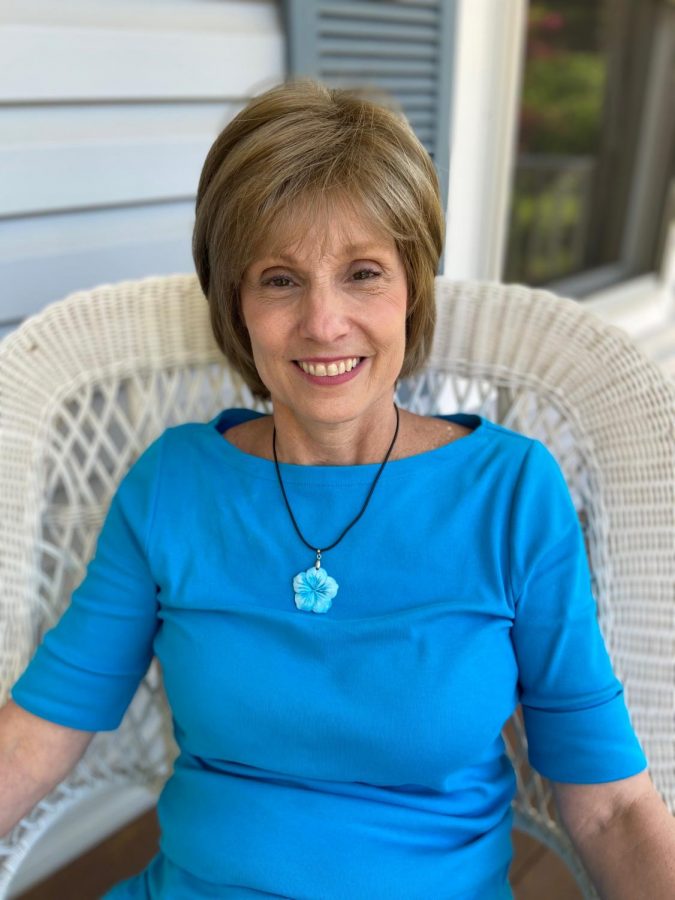
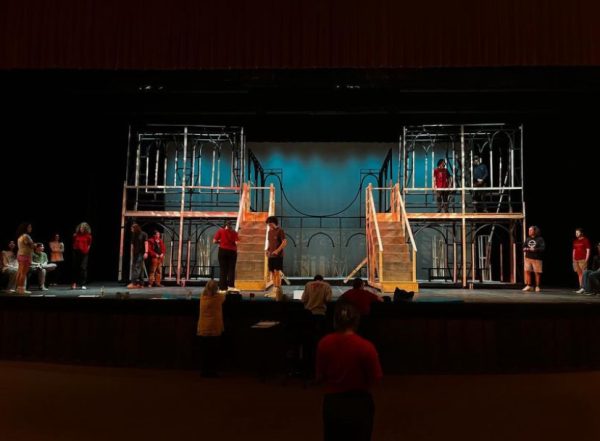
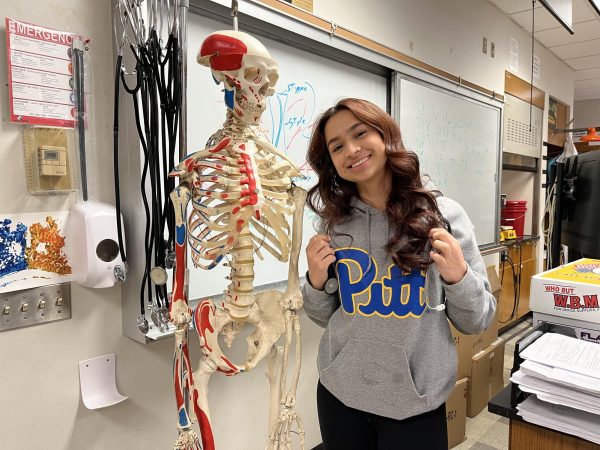

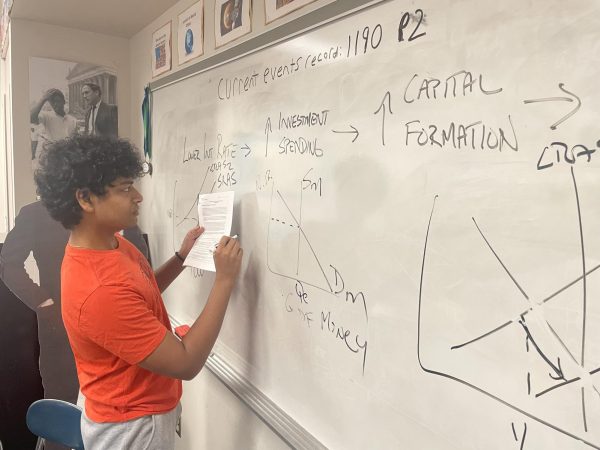
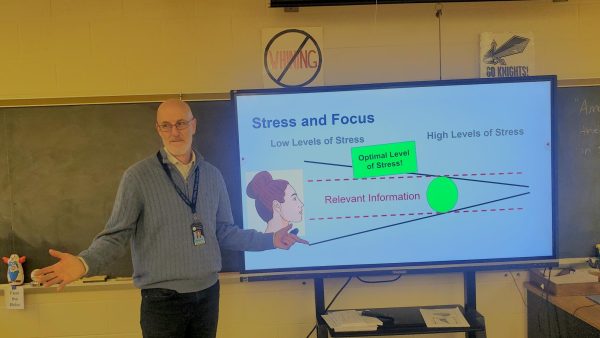

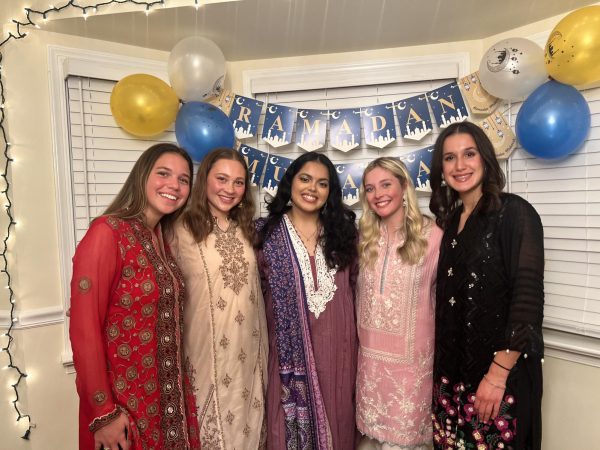
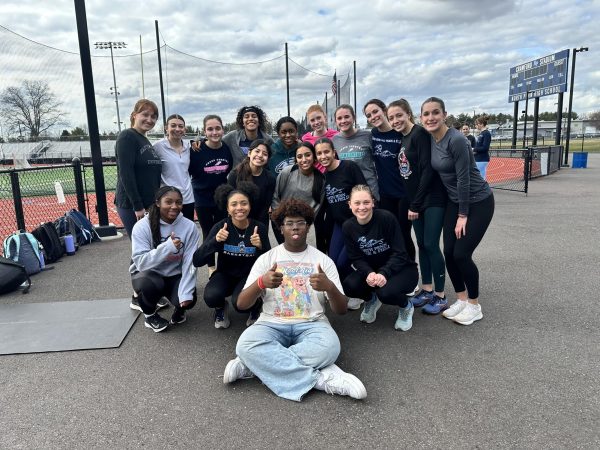

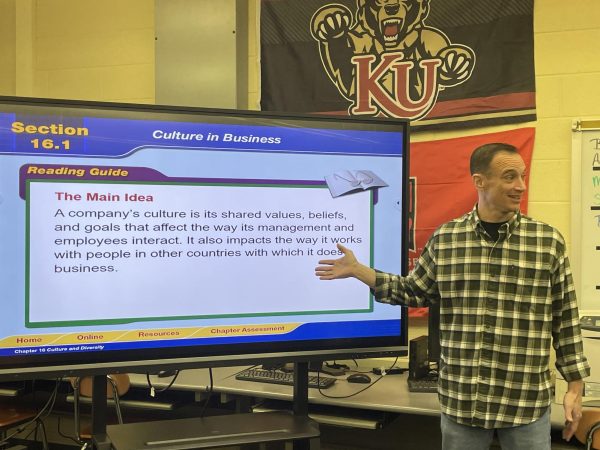
Elissa Leibowitz Poma • Jun 13, 2021 at 10:14 pm
My 15+ year career in newspapers was because of what Janet Kratz inspired in me while we worked on the Knight Crier. Today being the 30th anniversary of my graduation from NP, I thank you so much for being such a big part of my life. Congratulations on your retirement and here is to your continued recovery and good health.
Derek Pillie • Jun 3, 2021 at 9:41 am
Mrs. Kratz is an amazing educator! I’m so thankful for the influence she had on my life as a student and I’m sure countless other students who walked the halls at North Penn.